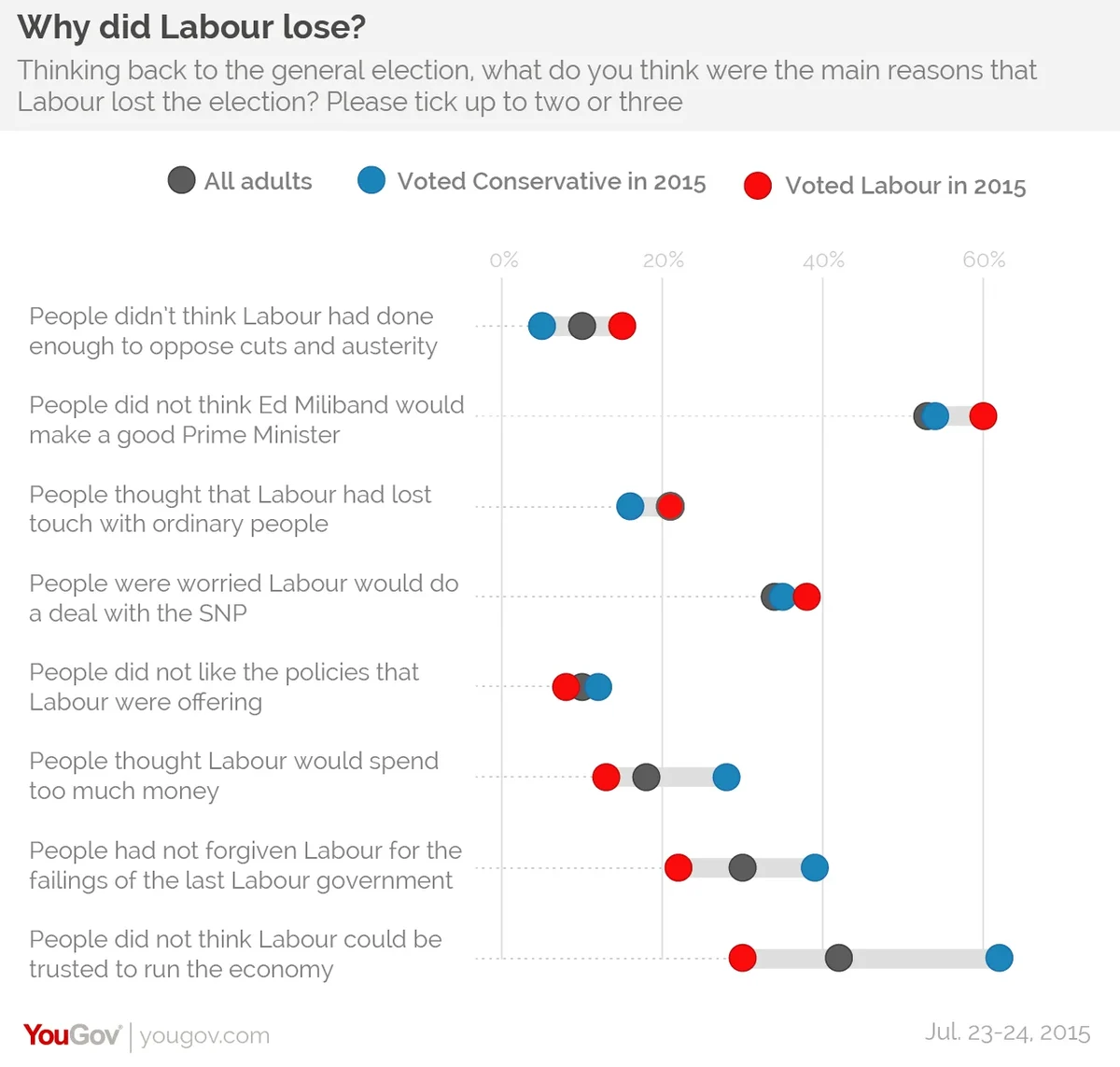Why did Labour lose? Labour and Tory voters offer different perspectives
Amid the excitement of a new Conservative government and a Labour leadership election May’s general election has quickly become history. But theories about what went wrong for Labour or right for the Tories will continue to shape British political thinking in the next five years and beyond – and according to a new YouGov poll there are not many theories ordinary voters agree on.
The graphic below shows how voters responded when asked to name the two or three main reasons that Labour lost the election. On just one of the eight explanations included in the poll does the majority of the public converge – 53% say doubts about Ed Miliband's leadership potential sank Labour. This includes the majority (60%) of those who voted Labour in 2015 as well as those who voted Conservative (54%).

In contrast, there are three other areas where Labour and Conservative voters are much further apart, each having to do with Labour’s past performance or credibility on policy. In each case Labour voters are less likely than Tory voters to say the reason was key. The explanation inspiring the widest gap is “people did not think Labour could be trusted to run the economy”, which is the single most popular explanation among those who voted Conservative in 2015 and comes only third among Labour voters. Tory voters are twice as likely as Labour voters to pick this option (62% to 30%) and twice as likely to blame fears that Labour would spend too much money (13% to 28%).
Another theory, that fears of an SNP-Labour deal drove voters away, does not divide voters but is less popular overall (34%) than Labour’s economic credibility or Ed Miliband.
Only one of the explanations is significantly more popular among Labour supporters than Conservatives: that Labour did not do enough to oppose austerity. Only 5% of Conservative backers say this was key to Labour’s defeat, compared to 15% of Labour voters who agree. A recent YouGov poll found a similar frustration to be even more common among the Labour leadership electorate.
Overall, Ed Miliband’s leadership is the only theory to be cited by a majority of the public and only three of the eight are mentioned by more than a third. Support for each theory is similarly spread out within voting groups, suggesting that, so far as the public is concerned, the story of the 2015 election remains unsettled.
PA image









